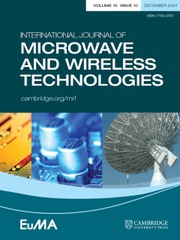Design and layout strategies for integrated frequency synthesizers with high spectral purity
Published online by Cambridge University Press: 05 June 2017
Abstract
Design guidelines for fractional-N phase-locked loops with a high spectral purity of the output signal are presented. Various causes for phase noise and spurious tones (spurs) in integer-N and fractional-N phase-locked loops (PLLs) are briefly described. These mechanisms include device noise, quantization noise folding, and noise coupling from charge pump (CP) and reference input buffer to the voltage-controlled oscillator (VCO) and vice versa through substrate and bondwires. Remedies are derived to mitigate the problems by using proper PLL parameters and a careful chip layout. They include a large CP current, sufficiently large transistors in the reference input buffer, linearization of the phase detector, a high speed of the programmable frequency divider, and minimization of the cross-coupling between the VCO and the other building blocks. Examples are given based on experimental PLLs in SiGe BiCMOS technologies for space communication and wireless base stations.
- Type
- Tutorial and Review Paper
- Information
- International Journal of Microwave and Wireless Technologies , Volume 9 , Issue 9 , November 2017 , pp. 1791 - 1797
- Copyright
- Copyright © Cambridge University Press and the European Microwave Association 2017
References
REFERENCES
- 4
- Cited by


